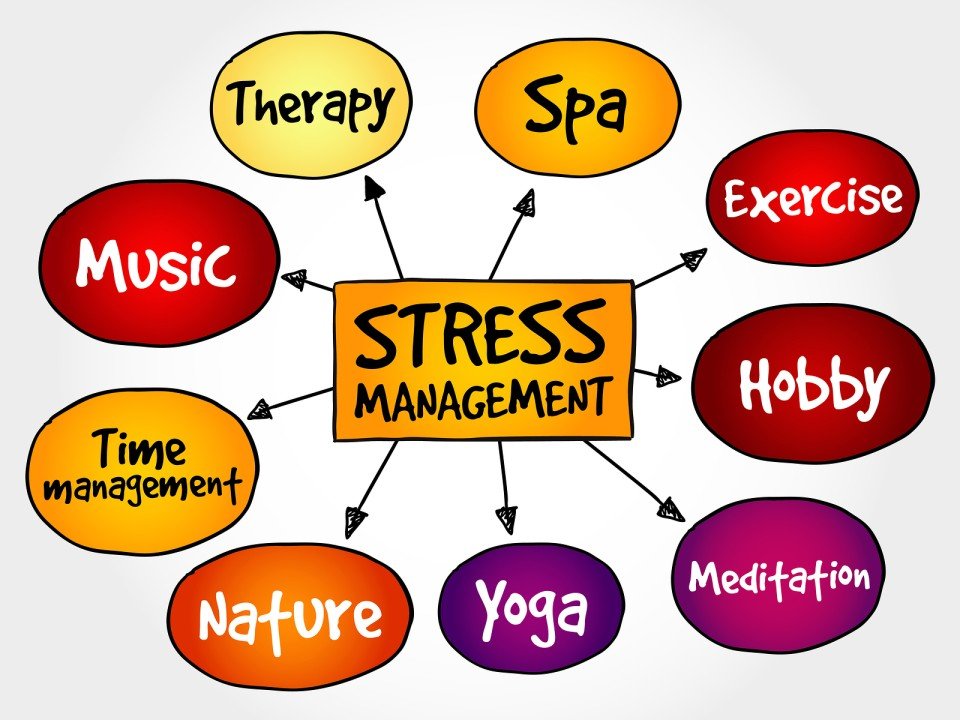In today’s busy world, stress has become an inevitable part of life. Whether it’s due to work pressure, financial issues, or personal challenges, managing stress is essential for maintaining a healthy mind and body. One of the most effective ways to combat stress is through regular exercise. Physical activity not only improves your overall health but also helps to manage stress by enhancing your mood, increasing relaxation, and providing a healthy outlet for tension.
1. Exercise Reduces Stress Hormones
When you experience stress, your body releases hormones like cortisol and adrenaline, which are part of the “fight or flight” response. While these hormones are helpful in the short term, prolonged stress can lead to negative health effects.
How Exercise Helps:
Engaging in physical activity helps lower the levels of these stress hormones. During exercise, your body releases endorphins—natural chemicals that promote feelings of happiness and well-being. This hormonal shift leaves you feeling more relaxed and less anxious.
2. Enhances Mood and Mental Well-Being
Exercise has a direct impact on your brain’s chemistry, improving mood and mental health. Activities like running, walking, or cycling can provide immediate emotional relief by boosting your brain’s production of serotonin and dopamine—two neurotransmitters linked to happiness.
Benefits for Mental Health:
- Reduced anxiety: Physical activity helps calm racing thoughts and reduces symptoms of anxiety.
- Increased self-esteem: Regular exercise improves your physical appearance and overall well-being, boosting self-confidence.
- Improved sleep quality: Engaging in exercise helps you fall asleep faster and enjoy deeper sleep, which is essential for managing stress.
3. Provides a Healthy Distraction
Sometimes, the best way to manage stress is to take your mind off of it. Exercise provides a healthy distraction from stressful thoughts, giving you time to clear your mind and focus on something positive.
How Exercise Distracts from Stress:
- It shifts your focus away from stressful events and towards physical movements.
- Group sports or fitness classes add a social element, allowing you to engage with others and foster new connections, further reducing stress.
4. Increases Energy Levels
While it may seem counterintuitive, exercise can actually boost your energy levels. This increased energy can help you feel more capable of handling daily challenges and stressors.
How Energy Boosts Reduce Stress:
- Regular physical activity improves your body’s efficiency in using oxygen, enhancing your endurance throughout the day.
- Increased energy helps combat feelings of fatigue, which can intensify feelings of stress and overwhelm.
5. Promotes Relaxation
Exercise, particularly low-intensity activities like yoga, tai chi, or stretching, helps relax both your body and mind. These exercises involve controlled breathing, slow movements, and meditation, all of which help calm the nervous system.
Relaxation Benefits:
- Reduces muscle tension caused by stress.
- Encourages mindfulness, allowing you to stay present and reduce feelings of anxiety.
- Lowers blood pressure, which often spikes during stressful situations.

6. Builds Resilience to Stress
Over time, regular exercise makes you more resilient to stress. As your body becomes accustomed to physical exertion, it adapts to handling both physical and emotional pressure better.
How Exercise Builds Resilience:
- Improves your body’s ability to recover from stressful events.
- Strengthens the mind-body connection, helping you better recognize and manage stress signals.
- Teaches discipline, patience, and perseverance, which translate into more effective coping mechanisms.
7. Encourages a Positive Mindset
Exercise fosters a sense of accomplishment and mastery over physical tasks. This sense of achievement can boost your confidence and promote a more optimistic outlook on life.
Positive Mindset Benefits:
- Physical activity helps you set and achieve personal fitness goals, creating a sense of pride.
- A positive mindset encourages a proactive approach to handling stress, reducing feelings of helplessness.
Conclusion
Exercise is one of the most powerful tools for managing stress. From reducing stress hormones and improving mood to promoting relaxation and building resilience, regular physical activity offers a wide range of benefits that support both mental and physical health. Whether you prefer intense workouts or calming yoga sessions, integrating exercise into your routine can help you handle life’s challenges with greater ease and reduce the negative effects of stress. Start small, stay consistent, and enjoy the long-term benefits of a healthier, stress-free lifestyle.




